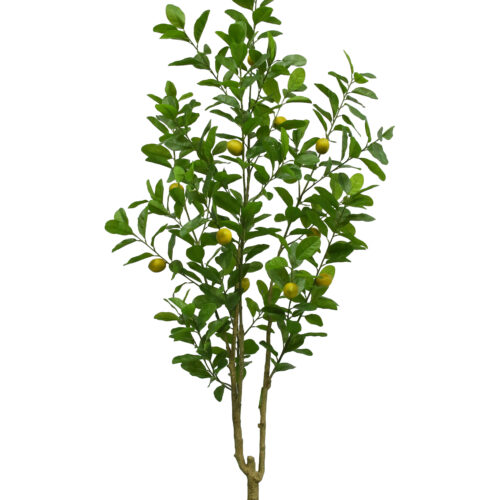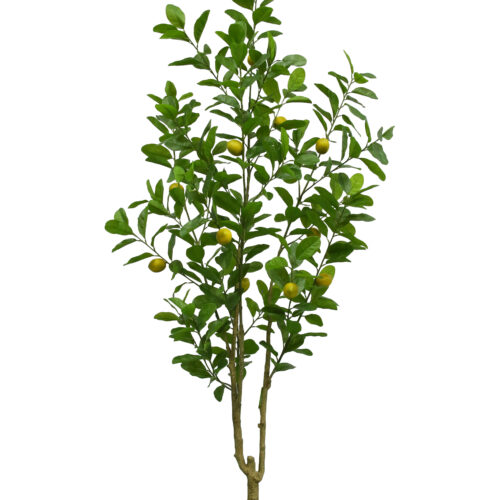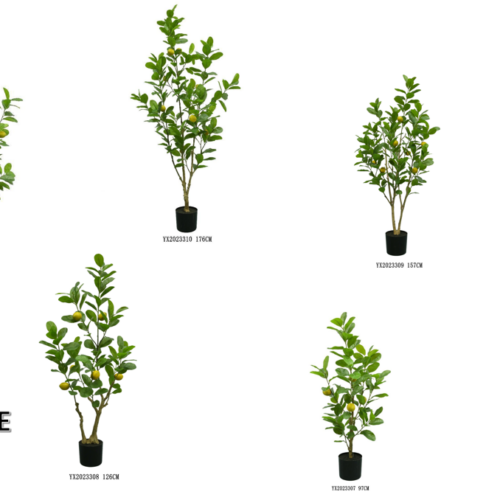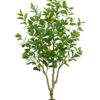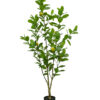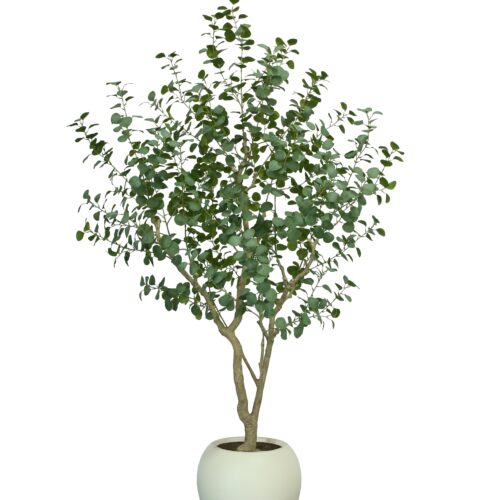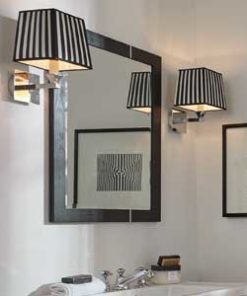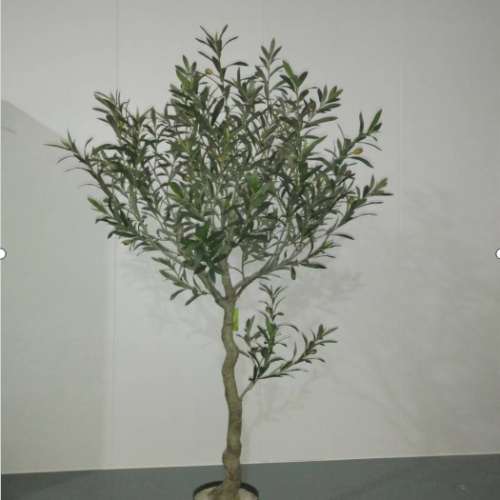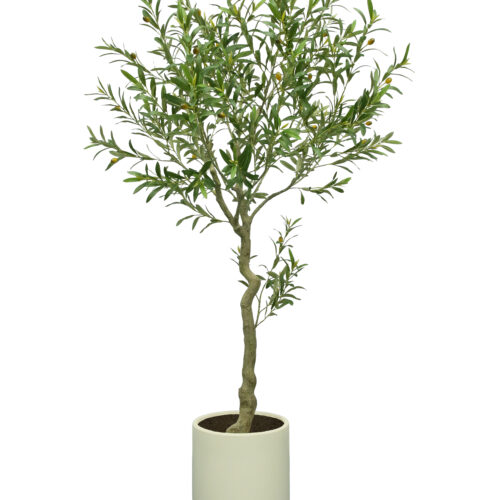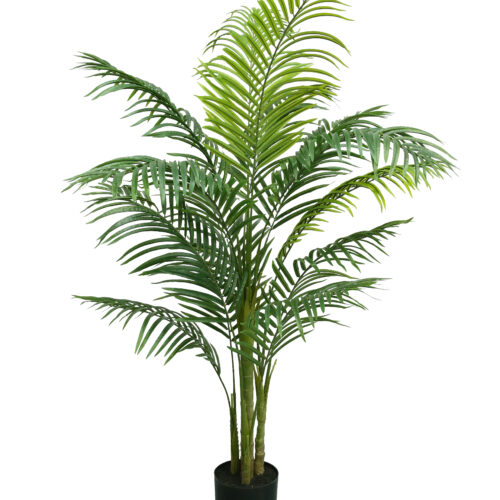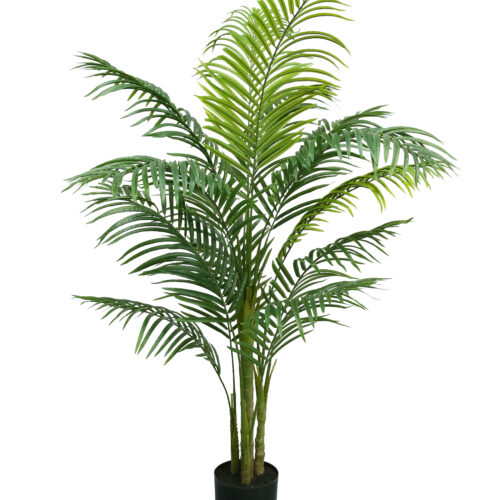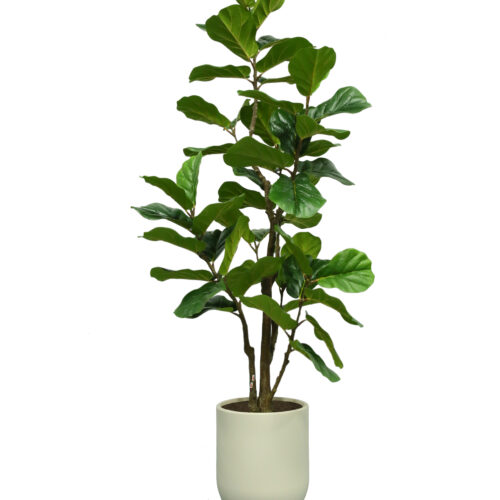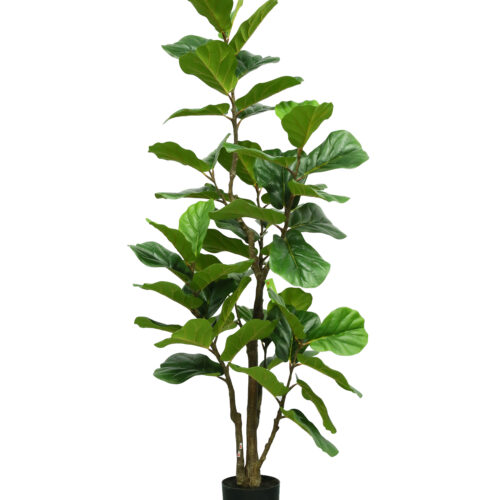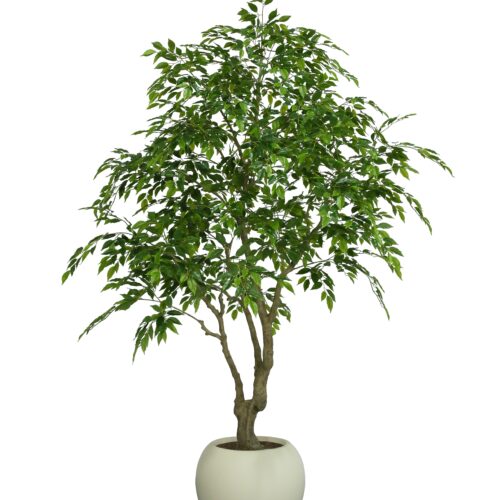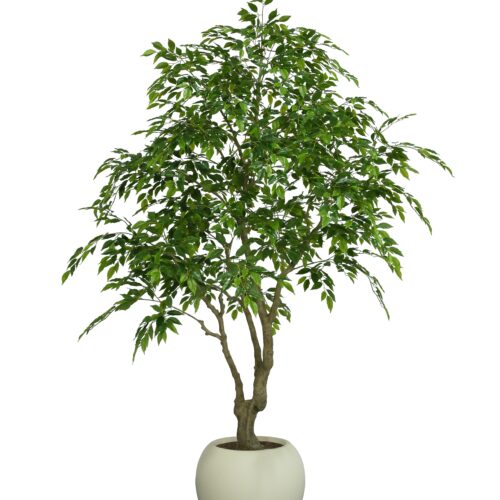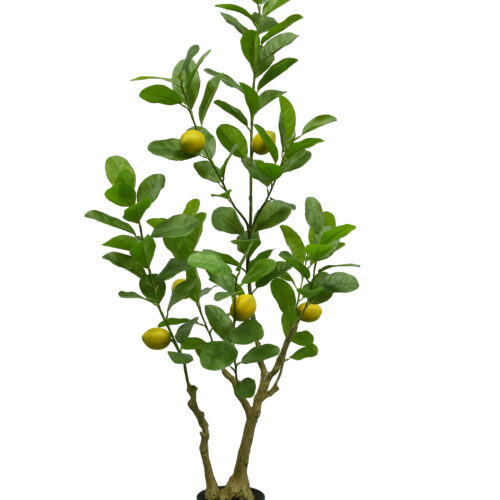343 LEAVES 11 FRUIT KD-LEMON


Fake lemon trees are artificial replicas designed to mimic the appearance of real lemon trees. Here’s a more detailed introduction:
Appearance:
- They typically feature a trunk, branches, and leaves that are crafted to look like those of a genuine lemon tree. The trunk may be made of a sturdy material such as plastic or resin, textured to resemble the bark of a real tree. The branches are arranged in a natural-looking way, often with a bit of flexibility to give the impression of a living tree’s growth pattern. The leaves are usually a bright green color, shaped like real lemon tree leaves, and may even have a slightly waxy or shiny finish to imitate the sheen of fresh foliage.
- Some fake lemon trees also come with artificial lemons attached to the branches. These lemons are usually made of plastic or foam, colored to look like ripe lemons, adding an extra touch of authenticity to the overall appearance.
Materials:
- As mentioned, the trunk and branches are often made of plastic, which is durable, lightweight, and can be molded into the desired shapes easily. Resin is another option, providing a more solid and detailed look, especially for the trunk.
- The leaves are commonly made of silk or a synthetic fabric that mimics the texture and appearance of real leaves. This gives them a soft, natural look while also being resistant to fading and damage.
- The artificial lemons, if included, are typically made of plastic or foam. Plastic lemons can have a more realistic shine and color, while foam lemons may be lighter and less likely to cause damage if accidentally knocked off the tree.
Uses:
- Decorative Purposes: Fake lemon trees are widely used for interior decoration. They can add a touch of freshness and a hint of the outdoors to homes, offices, restaurants, or any indoor space. Placing a fake lemon tree in a living room, kitchen, or entryway can create a bright and inviting atmosphere, especially during the colder months when real plants may not thrive.
- Event Decoration: They are also popular for special events such as weddings, parties, or corporate functions. A fake lemon tree can be a centerpiece or part of the overall decor, bringing a summery or Mediterranean feel to the event setting.
- Commercial Spaces: In shops, cafes, and hotels, fake lemon trees can enhance the visual appeal of the space, making it more attractive to customers. They provide a consistent look throughout the year, regardless of the season, and don’t require the care and maintenance that real lemon trees do.
Advantages:
- Low Maintenance: One of the biggest advantages is that they don’t need watering, fertilizing, pruning, or any of the other tasks associated with taking care of a real lemon tree. This makes them ideal for people who want the beauty of a lemon tree but don’t have the time or expertise to care for a living plant.
- Longevity: Fake lemon trees can last for many years if properly cared for (which mainly involves occasional dusting to keep them looking clean). They won’t die due to pests, diseases, or unfavorable environmental conditions like real plants might.
- Versatility: They can be placed in any location, regardless of light conditions or temperature. You can put a fake lemon tree in a dark corner of a room or in a place with no natural sunlight, and it will still look good.
In summary, fake lemon trees offer a convenient and attractive alternative to real lemon trees for those seeking to add a touch of lemon tree charm to their spaces without the hassle of plant care.



